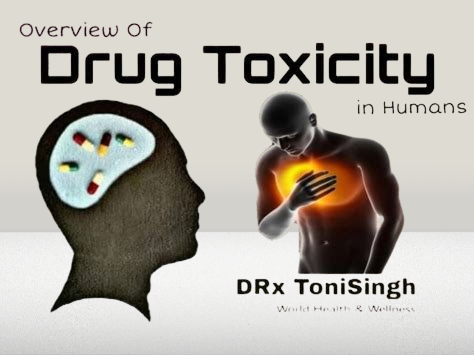Toxicity – Definition
Table of Contents
Toxicity refers to the degree to which a substance can harm humans and other living organisms. In a biological context, it is essential to recognize that toxicity can be induced by both external and internal factors. External sources of toxicity often include environmental pollutants such as heavy metals, pesticides, and industrial chemicals. These toxins can enter the body through ingestion, inhalation, or skin absorption, manifesting various adverse health effects. For example, lead exposure can result in neurological issues, while exposure to certain pesticides has been linked to respiratory problems.
On the other hand, internal sources of toxicity arise from the body’s metabolic processes. As the body metabolizes food and other substances, it produces waste materials that need to be eliminated effectively. Insufficient detoxification can lead to a buildup of these metabolic wastes, contributing to toxicity. Common internal toxins include ammonia and urea, which are byproducts of protein metabolism. If the body’s organs, particularly the liver and kidneys, are not functioning optimally, the clearance of these substances may be compromised, leading to toxic accumulation.
Lifestyle choices and dietary habits can further exacerbate toxicity levels in the body. A diet high in processed foods, sugars, and unhealthy fats can increase the body’s toxic load, while excessive alcohol consumption can impair liver function, hindering detoxification. Moreover, exposure to toxins through everyday products, including personal care items and household cleaners, can also escalate the risk of toxicity. Awareness of these sources and their potential impact on health is crucial in recognizing how to mitigate their effects through lifestyle changes.
Common Symptoms of Toxicity in the Body

Toxicity in the body can manifest through a wide range of symptoms, which often depend on the specific systems affected and the level of toxic exposure. One of the most prevalent areas where individuals may experience signs of toxicity is through physical symptoms. These can include persistent headaches, which often result from accumulated environmental pollutants or stressful lifestyles. Fatigue is another common symptom, frequently linked to an overload of toxins in the liver, hindering its ability to efficiently detoxify the body.
Furthermore, digestive issues such as bloating, constipation, or diarrhea can also indicate a toxic burden on the gastrointestinal system. The presence of toxins may disrupt normal gut flora, leading to poor digestion and absorption of nutrients. It is crucial to recognize that these symptoms can sometimes overlap with other health conditions, which makes identifying toxicity particularly challenging.
On a psychological level, symptoms of toxicity may present as anxiety, depression, or mood swings. These psychological effects can stem from the body’s inflammatory response to toxins, which can alter neurotransmitter function and lead to mental health issues. It is essential to consider these emotional symptoms alongside physical manifestations, as both can significantly impact one’s overall well-being.
Additionally, individuals may notice changes in their skin, including unexplained rashes or increased sensitivity, which can often signal toxin accumulation. Weight fluctuations, particularly unintentional weight gain or loss, may also indicate an imbalance related to toxic substances. Other signs can include chronic inflammation, allergies, and lowered immune response, which can make one more susceptible to infections and illnesses.
Recognizing these varied symptoms is key to understanding one’s health status with respect to toxic overload. By being aware of these indicators, individuals can take proactive steps to address potential toxicity and support their body’s natural detoxification processes.
How to Recognize Signs of Toxicity Early

Identifying the early warning signs of toxicity in the body is crucial for maintaining overall health. Toxicity can result from various factors, including environmental exposure, diet, and lifestyle choices. Being self-aware and diligent in monitoring changes in one’s health can lead to timely intervention and prevent further complications. Early symptoms often manifest in subtle ways, making it essential to cultivate a sense of awareness about how one’s body feels and behaves.
One effective strategy in recognizing toxicity is to keep a symptom diary. Documenting daily health changes, such as unexplained fatigue, headaches, or gastrointestinal issues, can help track patterns over time. This diary should include details on diet, exercise, exposure to chemicals, and emotional states. By correlating symptoms with these factors, individuals may identify potential triggers or patterns of toxicity. Such documentation can also be invaluable during consultations with healthcare professionals, as they can provide insights based on observed trends.
Consulting healthcare professionals is another vital step in recognizing signs of toxicity. Regular check-ups can assist in identifying underlying issues that may not be immediately noticeable. Additionally, professionals can recommend appropriate tests to assess toxic levels in the body, enabling a more informed approach to treatment. It’s important for individuals to express their concerns and observations during these consultations, ensuring that the practitioner understands the full scope of symptoms presented.
Understanding the timing and patterns of symptoms is also key. Individuals should note when symptoms worsen or improve in relation to potential toxic exposures, such as new household products or changes in diet. This awareness fosters proactive approaches to mitigate exposure and improve overall well-being. Ultimately, recognizing these early signs of toxicity can empower individuals to take decisive action towards their health, leading to a better quality of life.
Steps to Mitigate and Detoxify the Body

Managing and reducing toxicity levels in the body is essential for maintaining overall health and well-being. A holistic approach to detoxification not only aids in flushing out harmful substances but also enhances your body’s natural processes. Here are several practical steps individuals can take to mitigate and detoxify their bodies effectively.
First, consider dietary changes that promote health and support detoxification. Incorporating a wide variety of fruits and vegetables, particularly those rich in antioxidants, is vital. Foods such as spinach, kale, berries, and citrus fruits can help neutralize free radicals and combat oxidative stress. Additionally, lean proteins and whole grains should be included in your diet to provide essential nutrients. Reducing or eliminating processed foods, refined sugars, and trans fats is critical, as these can contribute to toxin accumulation in the body.
Hydration plays a crucial role in detoxification. Drinking plenty of water daily aids your kidneys in filtering out waste and toxins. Herbal teas, such as dandelion or green tea, can also support liver function and improve digestion. Aim for at least eight glasses of water per day, though this amount may increase with physical activity and exposure to heat.
Regular exercise is another important aspect of detoxification. Engaging in physical activity stimulates circulation and promotes sweating, both of which help eliminate toxins from the body. Aim for at least 150 minutes of moderate aerobic exercise weekly, alongside strength training exercises at least twice a week. This improves not only physical health but also mental well-being.
Lastly, consider specific detoxification methods such as intermittent fasting, sauna sessions, or gentle cleansing protocols under professional guidance. Preventive measures, including mindful consumption of clean, organic foods, can significantly reduce future toxicity levels. To further support detoxification, seek educational resources and consider consulting a healthcare professional who specializes in detoxification and holistic health.



[…] incorporating walking into daily routines, individuals can experience multifaceted health benefits that extend beyond physical fitness. Whether it’s a leisurely stroll in the park or […]